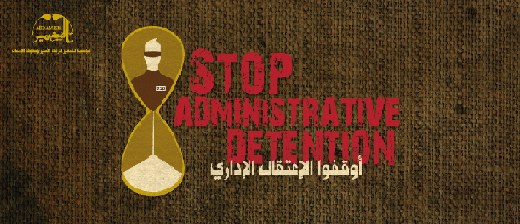Tag: Prisoner Rights
-
Mass Hunger-Strike Launched by Palestinian ‘Administrative Detainees’
24th April 2014 | Addameer Prisoner Support and Human Rights Association | Ramallah, Occupied Palestine Addameer Prisoner Support and Human Rights Association can confirm the launch of a mass open-ended hunger strike involving over 100 Palestinian political detainees. All those involved are being held under administrative detention, which is a procedure whereby detainees are held without charge…
-
Seven prisoners continue their hunger strikes despite increasing punitive measures
19th February 2014 | Addameer Prisoner Support and Human Rights Association | Ramallah, Occupied Palestine Seven Palestinian prisoners continue their individual hunger strikes as prison conditions worsen. This is the highest number of strikes since September 2013. Earlier this week, Addameer lawyer Samer Sama’an gained access to two of the three administrative detainees who started hunger strikes…
-
Wife of kidnapped Palestinian engineer Dirar Abu Sisi holds Gaza press conference
27th August 2013 | International Solidarity Movement, Gaza Team | Gaza, Occupied Palestine Yesterday Veronika Abu Sisi, the wife of Palestinian electrical engineer Dirar Abu Sisi, spoke with media and supporters in the Gaza Strip to denounce the international kidnapping, summary detention and solitary confinement of her husband. “We won’t give up until Dirar Abu Sisi…



